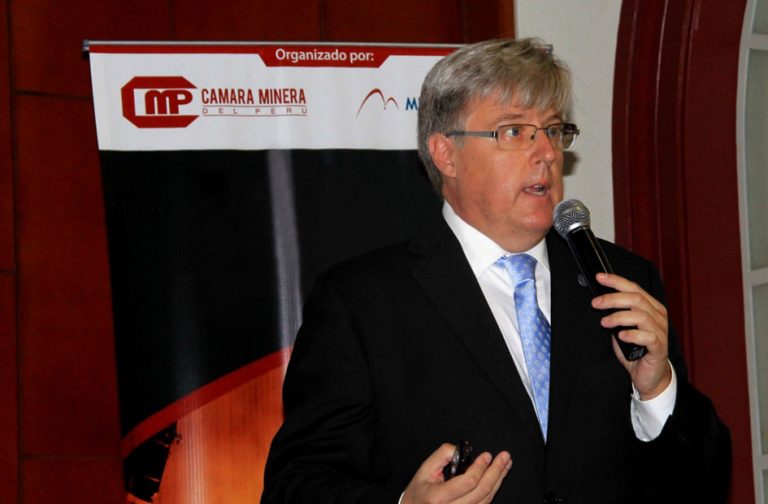A keynote lecture by the Chamber of Mines of Peru will be part of the International GeoMet 2016 Mining Congress.

The development of mining operations has been conditioned, during the last years, by the increase of socio-environmental conflicts. In view of this situation, the Chamber of Mines of Peru promotes that companies in the mining sector opt for programs aimed at pollution reduction and sustainable development.
Mg. Roberto Poncela Poncela, specialist of the Chamber of Mines of Peru, stated that «Detractors of mining accuse it of being an activity that generates environmental impacts and causes health problems for inhabitants of areas near the work sites. To counteract this negative concept, companies in the sector must develop a sustainable mining management plan. Success lies in the commitment of all workers at different levels within the organization.
In times of crisis, it is necessary for organizations to redouble efforts to develop and implement projects aimed at improving living conditions. Therefore, to guarantee a sustained development over time of the populations, both at educational, environmental, labor and health levels.
The environmental policy of companies should be focused on identifying those factors generated as a consequence of the extractive activity. These factors cause variations in the original conditions of the natural environment. To reduce or minimize these impacts, it is necessary to establish appropriate measures, as well as control and monitoring of corrective and preventive activities.
One of the actions carried out by mining companies to contribute to harmony of natural environment and sustainable development of mining sector are the Mine Closure Plans. These are instruments developed to adopt necessary measures before, during and after the closure of operations. Likewise, the objective is to eliminate, mitigate and control the adverse aspects that may occur, such as spillage of toxic substances in water sources, deforestation, transformation of natural landscape, etc.
For example, the Buenaventura Mines company executes actions to identify, evaluate, prevent and control environmental impacts of the operations. During 2014, the central focus of actions has been to ensure proper water management in exploration projects, prioritizing reuse. Thanks to this, water recirculation reached 82%; also, 16 participatory monitoring activities were developed. In addition, progress was made in mine closure works, having 83 hectares of land rehabilitated. All of this represented an investment of US$18 million.
In terms of social responsibility, sustainable development actions must promote economic activities. In addition, they must improve the education, health and nutrition levels of the populations.
As an example, we can mention the Milpo Mining Group, which is continuously working on implementation of a social management system that promotes joint work with communities to strengthen the capacities of inhabitants.
These programs are divided into four lines of action: education, health, nutrition, and local economic development. In health and nutrition sectors, the objective is to improve availability of local food through family bio-gardens and the raising of small animals.
In education, the objective is to improve students’ reading and mathematical reasoning skills. Also, the program works to strengthen management capacity of directors of educational institutions, technical-methodological skills of teachers are developed. These programs promoted by mining sector produce sustainable development which, as well known, contemplates that economic, social and environmental growth go hand in hand.
Regarding local economic development, in some influence areas such as Pasco and Chincha, production of native potatoes is promoted. Which are developed and improve the capacity of families to raise and market guinea pigs, and cattle, sheep and goats are also promoted.
Finally, in terms of local benefits, the commitment is focused on training leaders and authorities, and preparing and updating community development plans.
These initiatives indicate the interest of mining organizations in preventing and minimizing inevitable impacts caused by development of extractive projects.
The Chamber of Mines of Peru, as a leading institution in training of professionals in mining industry, promotes the reduction of socio-environmental impacts through its academic programs.
Implementation of programs of this nature is intended to bring about a change in image that people have of mining. They also seek to preserve natural environment and improve living conditions of the inhabitants. It also contributes to greater acceptance of mining among stakeholders.
The presentation of this important topic at the «International GeoMet 2016 Mining Congress” will be made by Mg. Roberto Poncela, who has more than 30 years of experience in Spain and several countries in South America; and also serves as Director of the Advisory Council of the Chamber of Mines of Peru.